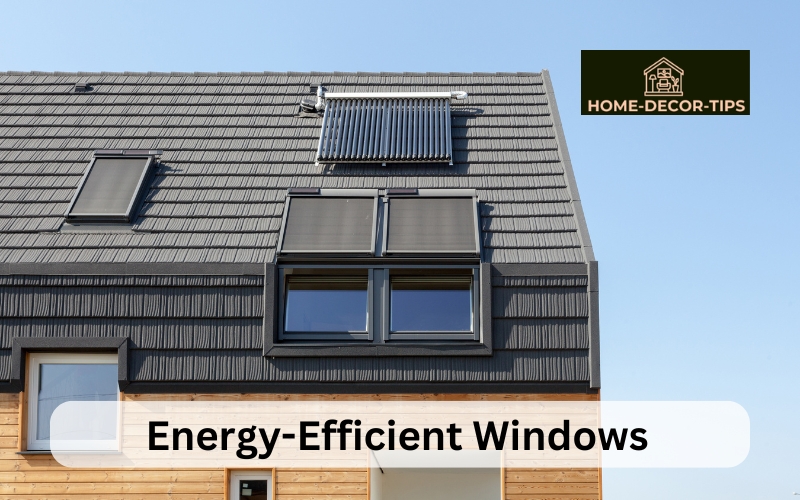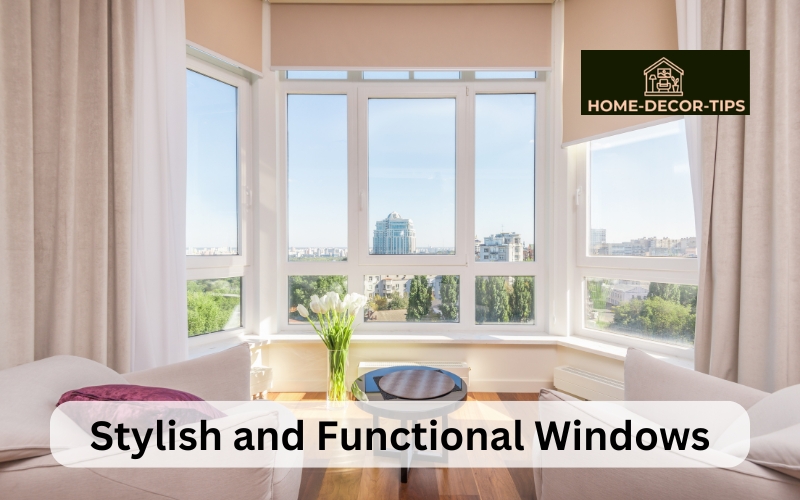Energy-Efficient Windows: A Guide to Lowering Utility Bills

Energy-efficient windows play a crucial role in reducing energy consumption and lowering utility bills in homes. By minimizing heat transfer, blocking harmful UV rays, and improving insulation, these windows help maintain comfortable indoor temperatures year-round while reducing the need for heating and cooling. This guide will provide valuable information on the benefits of energy-efficient windows and tips for choosing the right ones to maximize energy savings.
Benefits of Energy-Efficient Windows:
- Lower Energy Costs: Energy-efficient windows reduce heat gain in summer and heat loss in winter, resulting in reduced reliance on heating and cooling systems and lower energy bills.
- Improved Comfort: By minimizing drafts and maintaining consistent indoor temperatures, energy-efficient windows create a more comfortable living environment year-round.
- UV Protection: Low-emissivity (low-E) coatings on energy-efficient windows block harmful UV rays, protecting furniture, flooring, and interior decor from fading and sun damage.
- Noise Reduction: Energy-efficient windows with multiple panes and insulated frames provide better sound insulation, reducing outdoor noise infiltration for a quieter indoor environment.
- Environmental Benefits: By reducing energy consumption, energy-efficient windows help lower greenhouse gas emissions and contribute to a more sustainable environment.
Key Features to Look For:
- Low-E Coatings: Look for windows with low-emissivity (low-E) coatings, which reflect infrared light to keep heat inside during winter and outside during summer, improving energy efficiency.
- Multiple Panes: Double or triple-pane windows with insulating gas fillings (such as argon or krypton) provide enhanced insulation and reduce heat transfer, improving energy efficiency.
- Insulated Frames: Choose windows with insulated frames made from materials such as vinyl, fiberglass, or wood composites, which minimize heat conduction and improve thermal performance.
- Energy Star Certification: Look for windows that are Energy Star certified, indicating they meet strict energy efficiency criteria set by the Environmental Protection Agency (EPA) and Department of Energy (DOE).
Types of Energy-Efficient Windows:
- Double-Hung Windows: Classic and versatile, double-hung windows feature two operable sashes that slide vertically for easy ventilation and cleaning.
- Casement Windows: Hinged on one side and crank-operated, casement windows offer excellent ventilation and a tight seal when closed, minimizing air leakage.
- Awning Windows: Hinged at the top and opening outward from the bottom, awning windows provide ventilation and protection from rain while maintaining energy efficiency.
- Fixed Windows: Non-operable fixed windows are sealed shut, offering maximum energy efficiency and unobstructed views.
Professional Installation and Maintenance:
- Proper installation is essential for maximizing the energy-saving benefits of energy-efficient windows. Hire a reputable contractor with experience installing energy-efficient windows to ensure a tight seal and proper insulation.
- Regular maintenance, including cleaning, lubricating hardware, and inspecting seals and weatherstripping, helps prolong the lifespan and performance of energy-efficient windows.
Additional Tips for Energy Savings:
- Use window coverings such as curtains, blinds, or shades to further reduce heat gain in summer and heat loss in winter.
- Seal gaps and cracks around windows with weatherstripping or caulking to prevent air leakage and improve energy efficiency.
- Consider investing in other energy-saving measures such as attic insulation, sealing ductwork, and upgrading to energy-efficient appliances for maximum energy savings.
Conclusion:
Energy-efficient windows are a smart investment for homeowners looking to lower utility bills, increase comfort, and reduce their environmental footprint. By understanding the benefits of energy-efficient windows, choosing the right features and types, ensuring professional installation and maintenance, and implementing additional energy-saving measures, homeowners can enjoy significant energy savings and a more comfortable living environment for years to come.






